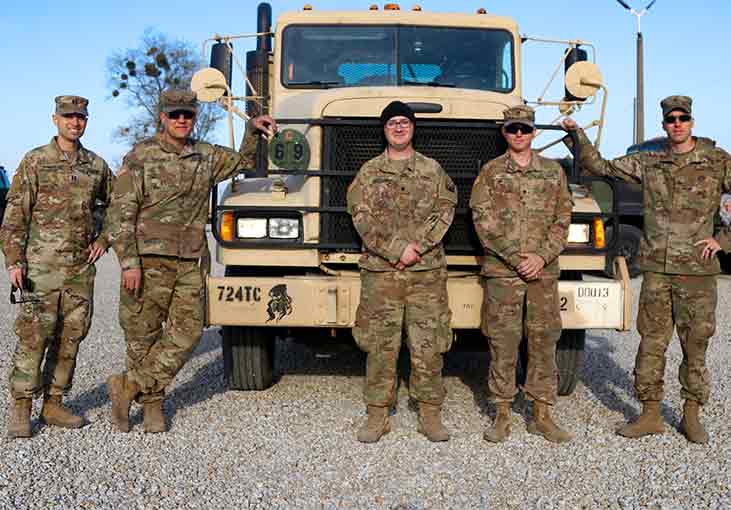In the military, strong social support can keep you and your team ready to handle any challenge that comes your way. Not only does creating a “stress support team” make your relationships stronger, it can also reduce loneliness, create more unity, increase motivation, enhance resilience, and help you make better decisions.
The worksheet below is designed to help you build a support system to manage your stress when you’re straying from your optimal zone of functioning. You’ll learn how to choose the members of your stress team, and share any “orange or red flags”—or triggers that make you feel overwhelmed or stressed. You also can offer ways for them to let you know when they notice orange- or red-flag behavior and which coping strategies might work best for you.
The second part of the worksheet will help you think about how to become a better source of support for others. First, think about the person who energizes you and makes you feel secure. Write down why you picked them and the qualities they possess that have a positive impact on you. Then flip it. Who would you like to become an elevating leader for—and which qualities should you develop to become that person?
Use the worksheet to build the best stress team and become a great source of social support for those around you. When you start applying these methods, you may notice your team performing better under heightened stress and maintaining optimal performance. For more information on social support and how it can better your team and personal health, check out these HPRC resources.
How social fitness impacts mental fitness
Social support: Your total-fitness strategy
Use social support to combat military burnout
Social fitness and performance – Part 1: Impact on brain and overall health
What is social fitness? The basics of relationship health for Service Members
Published on: September 11, 2024
References
American Psychological Association. (2022). Manage stress: Strengthen your support network. Retrieved 4 September 2024 from https://www.apa.org/topics/stress/manage-social-support
Blais, R. K., Tirone, V., Orlowska, D., Lofgreen, A., Klassen, B., Held, P., Stevens, N., & Zalta, A. K. (2021). Self-reported PTSD symptoms and social support in U.S. military service members and veterans: A meta-analysis. European Journal of Psychotraumatology, 12(1), 1851078. doi:10.1080/20008198.2020.1851078
Cacioppo, S., Capitanio, J. P., & Cacioppo, J. T. (2014). Toward a neurology of loneliness. Psychological Bulletin, 140(6), 1464–1504. doi:10.1037/a0037618
Ruiz, M. C., Raglin, J. S., & Hanin, Y. L. (2015). The individual zones of optimal functioning (IZOF) model (1978–2014): Historical overview of its development and use. International Journal of Sport and Exercise Psychology, 15(1), 41–63. doi:10.1080/1612197x.2015.1041545
